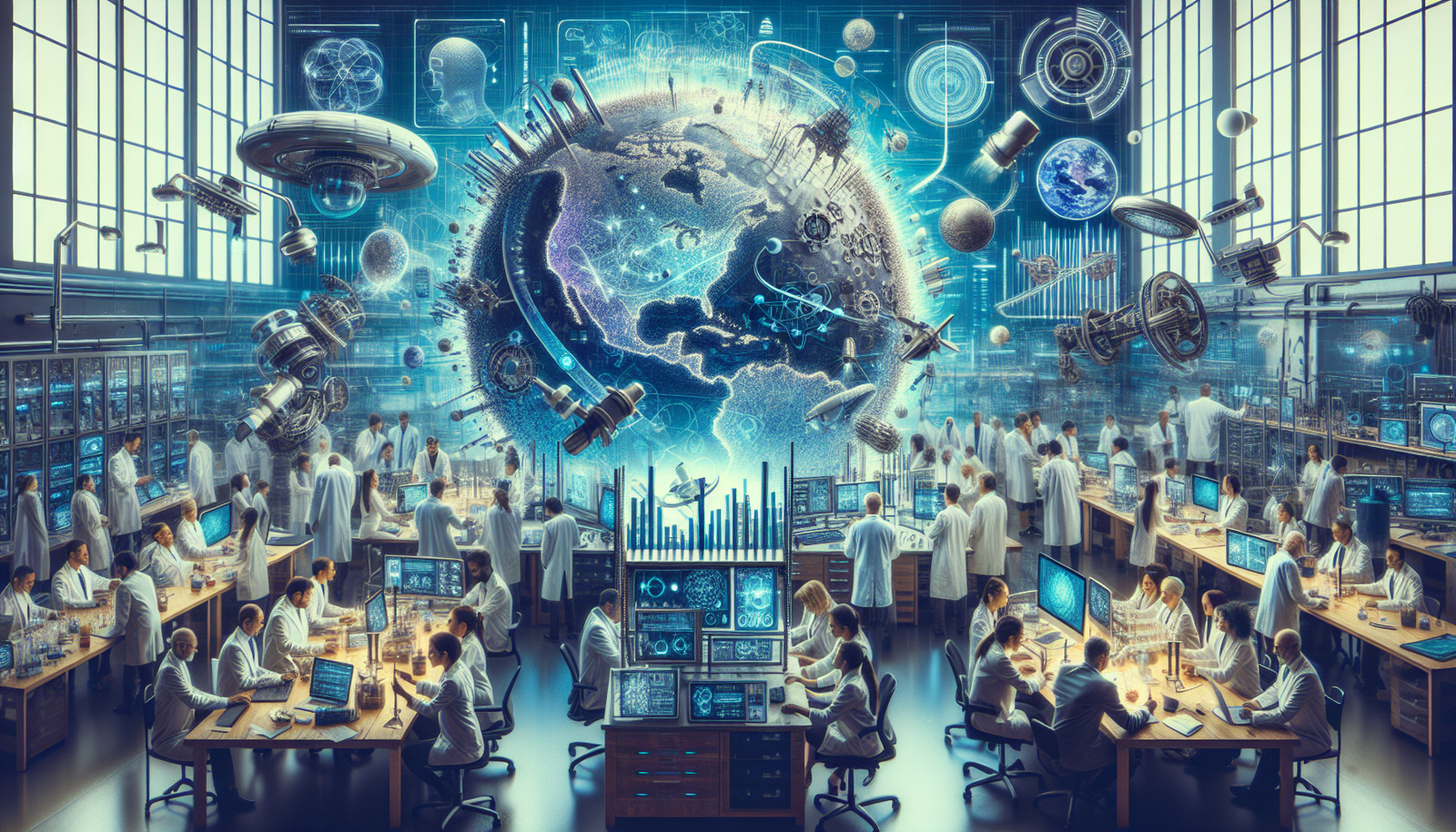Confidence in Scientific and Technological Abilities
During a recent intervention, Arati Prabhakar, science advisor at the White House, expressed her confidence in the capabilities of science and technology in the United States. According to Prabhakar, the goal of science and innovation is to develop possibilities that allow us to achieve great national aspirations.
She emphasized that the current ambitions of the country are among the highest ever known. Prabhakar identified three major challenges of scientific and technological developments: cancer prevention, climate change, and artificial intelligence. The necessity of maintaining the United States’ global leadership in research was expressed, which she considers one of “America’s great assets.”
Investments in Research and Innovation
Since the end of World War II, the United States’ commitment to fundamental research has built an unmatched research capacity. Arati Prabhakar stressed the importance of this tradition, noting advancements in the commercialization of technology resulting from fundamental research.
She pointed out that the Biden administration has invested in various mechanisms enabling increased collaboration between the public and private sectors, aiming to accelerate the technological transition to the market. This includes innovation-promoting initiatives to transform scientific results into tangible products.
Focus on Cancer, Artificial Intelligence, and Climate Change
Regarding the fight against cancer, Prabhakar highlighted the “Cancer Moonshot” program, which aims to reduce cancer mortality rates by half over the next 25 years. This program encompasses various approaches, from improving access to care to early detection of cancers. The ambition is to create an environment where health is standard and where everyone can live their life with peace of mind.
As for artificial intelligence, its impact has been described as both promising and concerning. Prabhakar stated that it is time to adopt active measures to ensure that AI brings more benefits to individuals. She emphasized the central role of research in the development of this technology.
The issue of climate change was also addressed with a clear statement: although climate transformation is inevitable, the severity of this crisis depends on our choices. Recent laws, such as the Infrastructure Investment and Jobs Act and the Inflation Reduction Act, represent significant advances towards the transition to clean energy.
Interaction with Universities and the Private Sector
Prabhakar shared the stage with influential academic figures during a recent event at MIT, where the interaction between university science and the private sector was highlighted. The event, organized by the Manufacturing@MIT Working Group, provided a platform to discuss the contributions of universities to the advancement of science and technology in the country.
The role of universities like MIT in technological development was described by Prabhakar as central. This collaboration is designed to strengthen scientific capacities and meet contemporary challenges.
Responses to Public Concerns about Science
When asked about the decline in public trust in science, Prabhakar encouraged not to take these changes personally. She noted that this mistrust is less pronounced than in other institutions. Scientists must continue to assert the importance of facts while communicating clearly and humbly, strengthening the link between science and the informed choices of the public.
President Biden, according to Prabhakar, envisions America as a country rooted in the notion of “possibilities.” She believes that the scientific and technological mission contributes to realizing these possibilities, emphasizing that collaboration between scientists and society should lead to new opportunities for all.
Frequently Asked Questions about a Perspective for the Success of American Science
What are the main challenges facing American science today?
The main challenges include funding for fundamental research, combating climate change, the prevalence of scientific misinformation, and the need to improve public trust in science.
How does the U.S. government support scientific innovation?
The U.S. government invests in research and development through programs like “Cancer Moonshot” and the Inflation Reduction Act, which aim to accelerate the transition to clean energy and reduce cancer mortality rates.
What role do universities play in the success of American science?
Universities are essential for fundamental research, training researchers and innovators while contributing to significant scientific discoveries that fuel American competitiveness in science and technology.
What is the impact of artificial intelligence on scientific advancements in the United States?
Artificial intelligence accelerates the research process, optimizes data analysis, and opens new avenues for discoveries in various fields, from medicine to the environment.
How can American science improve public trust?
To strengthen public trust, scientists must communicate clearly and humbly, presenting facts and engaging in open dialogues with the community while highlighting the importance of science for overall well-being.
Why is public funding crucial for science in the United States?
Public funding is crucial as it supports fundamental research that may not attract private investment and ensures a balance between commercial interests and the ethical demands of science.
What are the future prospects for American science?
The future prospects are promising, with an increasing focus on interdisciplinarity, sustainable innovation, and international collaboration, which could strengthen the United States’ position as a global leader in science and technology.






